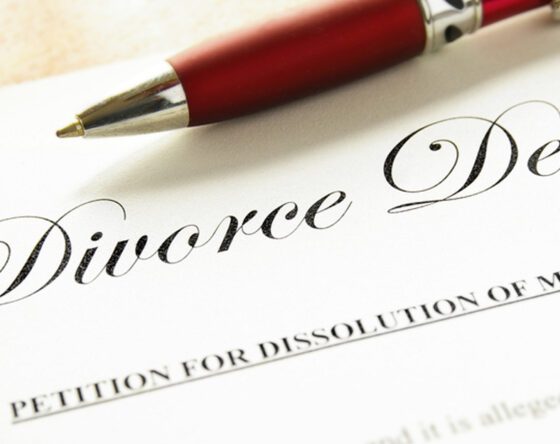

Law
Divorce Proceedings: A User’s Guide
Are you in the middle of a difficult family law case? When it comes to issues like divorce, child custody, and other legal matters, it’s important to have an experienced family law attorney on your side. A good lawyer can help ensure that your rights and interests are respected throughout the process. In this blog post, we’ll take a look at what qualities you should look for when hiring a family law attorney. We’ll discuss their experience, qualifications, and legal approach to make sure that you find the best representation for your case.
What is family law?
Family law is a branch of civil law that deals with family-related matters and domestic relations, including marriage, adoption, child custody, and divorce. Family law also encompasses issues related to property division, spousal support, and child support.
What do family law attorneys do?
Most family law attorneys deal with divorce cases, but they can also help with other legal issues involving families. They might help people adopt children or represent them in child custody and visitation disputes. Family law attorneys also help people write prenuptial agreements or deal with other family-related issues that arise before or after marriage.
How to choose and find a good family law attorney?
When you are going through a divorce or other family law issue, you want to make sure that you have a good attorney by your side. Here are some tips on how to find a good family law attorney:
When you are dealing with a family law issue, you want an attorney who is experienced and knowledgeable in the area. You also want someone who is compassionate and understanding, as well as aggressive when necessary. Here are some tips on how to choose a family law attorney:
1. Do your research. Talk to friends, family, and acquaintances who have consulted with a family law attorney in the past. Ask them about their experience and whether they would recommend the attorney. You can also look online for reviews of attorneys in your area.
2. Schedule initial consultations with several different attorneys. Many attorneys offer free initial consultations, so take advantage of this opportunity to meet with the attorney, ask questions, and see if you feel comfortable working with them. This will give you a chance to get a feel for their personalities and how they would handle your case. Make sure to ask about their success rate as well, so you know your expectations.
3. Choose an attorney you feel comfortable working with. This is someone you will be working closely with, so it’s important that you trust them and that they have your best interests at heart.
What to expect from a family law attorney
A family law attorney can provide a wide range of services, from simple advice to full representation in court. The attorney can help you understand the law and how it applies to your situation, advise you on the best course of action, and represent you in court if necessary.
The attorney can also help you negotiate with the other party, draft legal documents, and file paperwork with the court. In some cases, the attorney can even help you reach an agreement without going to court.
No matter what your situation is, a family law attorney can provide invaluable assistance. If you are facing a difficult legal issue, don’t hesitate to seek out the help of a qualified professional.
The different types of family law
There are many different types of family law, and a family law attorney can help you with any or all of them. The most common type of family law is divorce, but there are also other types, such as child custody, child support, spousal support, adoption, and more.
If you are considering a divorce, you will want to speak to a family law attorney about the different types of divorce and what is right for your situation. There are many different factors that go into a divorce, and an attorney can help you navigate the process and make sure that everything is done correctly.
If you have children, you will also want to speak to a family law attorney about child custody and child support. This is an integral part of any divorce, and an attorney can help you make sure that your children are taken care of financially and emotionally after the divorce.
There are many other types of family law besides divorce, and an attorney can help you with any or all of them. Whether you need help with child custody, child support, spousal support, adoption, or anything else, a family law attorney can assist you.
Conclusion
In summary, a family law attorney is an invaluable resource that can help you navigate the complex legal issues surrounding your family. Whether it’s navigating custody disputes or drafting prenuptial agreements, they are experienced, and knowledgeable professionals who can provide sound advice to ensure your rights are protected. When dealing with sensitive matters such as these, it’s crucial to have a reliable advocate on your side — so if you’re facing any kind of family-related legal issue, consider the services of a qualified family law attorney today.
Law
Unveiling the Paul MacKoul, MD Lawsuit: A Detailed Exploration

In the realm of gynecologic surgery, Dr. Paul MacKoul stands as a distinguished figure, renowned for his contributions to minimally invasive surgical techniques and advancements in women’s healthcare. With a career spanning decades, Dr. MacKoul has garnered widespread recognition for his innovative approaches aimed at enhancing patient outcomes. However, recent developments have brought attention to a Paul MacKoul, MD Lawsuit involving Dr. MacKoul, raising questions about its implications on his esteemed medical practice and reputation. To comprehend the nuances of this ongoing legal battle, it is imperative to delve into Dr. MacKoul’s professional background, the allegations made against him, legal proceedings, key players involved, expert analyses, and potential outcomes.
Dr. Paul MacKoul: A Pioneer in Gynecologic Surgery
Dr. Paul MacKoul’s journey in the field of gynecologic surgery has been marked by groundbreaking advancements and a relentless commitment to improving patient care. Throughout his career, he has been at the forefront of developing and refining minimally invasive surgical techniques, revolutionizing the way complex gynecologic conditions are treated. His expertise spans a wide array of procedures, including laparoscopic and robotic surgeries, aimed at addressing conditions such as fibroids, endometriosis, and ovarian cysts.
Dr. Paul MacKoul’s journey into the realm of gynecologic surgery began with a solid foundation in medical education and training. After completing his undergraduate studies, he pursued a medical degree, followed by specialized training in obstetrics and gynecology. Armed with a deep understanding of women’s health and reproductive anatomy, Dr. MacKoul embarked on a career dedicated to advancing surgical techniques and improving patient outcomes.
One of Dr. MacKoul’s most significant contributions to gynecologic surgery lies in his pioneering work in minimally invasive techniques. Recognizing the limitations and drawbacks of traditional open surgeries, he sought to develop less invasive approaches that would minimize patient discomfort, reduce recovery times, and enhance surgical precision. Through his innovative efforts, Dr. MacKoul has played a pivotal role in popularizing laparoscopic and robotic-assisted surgeries for a wide range of gynecologic conditions, including fibroids, endometriosis, and ovarian cysts.
Central to Dr. MacKoul’s approach to gynecologic surgery is a steadfast commitment to patient-centered care. He prioritizes open communication, informed decision-making, and compassionate support throughout the treatment process. By empowering patients with knowledge and involvement in their care, Dr. MacKoul fosters a sense of trust and collaboration that is essential for achieving optimal outcomes.
Uncovering the Lawsuit Allegations
The lawsuit against Dr. Paul MacKoul alleges malpractice and negligence in the performance of surgical procedures, resulting in harm to patients. Specific allegations include failure to obtain informed consent, improper surgical technique, post-operative complications, and inadequate follow-up care. Plaintiffs in the lawsuit claim to have suffered physical, emotional, and financial damages as a result of Dr. MacKoul’s alleged misconduct.
Legal Proceedings and Timeline
The legal proceedings surrounding the lawsuit against Dr. Paul MacKoul have unfolded over a period of several months, with multiple hearings and motions filed by both parties. The timeline of events includes the filing of the initial complaint, discovery phase, depositions of witnesses, and pre-trial hearings. As the case progresses, both sides continue to present evidence and arguments to support their respective positions.
Key Players in the Lawsuit
Aside from Dr. Paul MacKoul and the plaintiffs, several key players are involved in the lawsuit, including legal representatives for both parties, expert witnesses, and medical professionals. Each party plays a crucial role in shaping the outcome of the case, presenting evidence, and making arguments before the court.
Impact on Paul MacKoul’s Medical Practice
The lawsuit against Dr. Paul MacKoul has undoubtedly cast a shadow over his esteemed medical practice, raising concerns among patients and colleagues alike. The allegations of malpractice and negligence threaten to tarnish his reputation as a skilled and compassionate physician, potentially affecting patient trust and referrals. Moreover, the financial and emotional toll of defending against such serious accusations cannot be understated, impacting both Dr. MacKoul and his practice staff.
Expert Opinions and Analysis
Expert opinions and analyses play a significant role in shaping the trajectory of the lawsuit against Dr. Paul MacKoul. Medical experts may be called upon to provide insights into the standard of care expected in gynecologic surgery, the alleged deviations from this standard, and the resulting impact on patient outcomes. Legal experts may offer interpretations of relevant laws and precedents, helping the court navigate complex legal issues.
Potential Outcomes and Consequences
As the lawsuit against Dr. Paul MacKoul unfolds, several potential outcomes and consequences may arise. If found liable for malpractice, Dr. MacKoul could face disciplinary action, including the revocation of his medical license and financial penalties. Additionally, a negative verdict could have far-reaching implications for his medical practice, including damage to his reputation, loss of patients, and diminished professional opportunities. Conversely, if Dr. MacKoul is exonerated of the allegations, he may seek to rebuild his reputation and resume his practice with renewed vigor.
Conclusion
In conclusion, the Paul MacKoul, MD Lawsuit represents a critical juncture in his distinguished career in gynecologic surgery. While his contributions to minimally invasive surgical techniques and advancements in women’s healthcare are undeniable, the allegations of malpractice and negligence threaten to undermine his professional standing and reputation. As the legal proceedings unfold, it is essential to carefully consider the evidence presented and the expert opinions offered, recognizing the potential impact on Dr. MacKoul’s medical practice and the broader medical community. Ultimately, the outcome of the lawsuit will not only shape Dr. MacKoul’s future but also serve as a reminder of the importance of upholding the highest standards of patient care and ethical conduct in the practice of medicine.
FAQs
1. What is the Paul MacKoul, MD Lawsuit about? The lawsuit against Dr. Paul MacKoul alleges malpractice and negligence in the performance of surgical procedures, resulting in harm to patients. Specific allegations include failure to obtain informed consent, improper surgical technique, post-operative complications, and inadequate follow-up care.
2. What are the potential consequences of the lawsuit for Dr. Paul MacKoul? If found liable for malpractice, Dr. MacKoul could face disciplinary action, including the revocation of his medical license and financial penalties. Additionally, a negative verdict could damage his reputation, lead to loss of patients, and impact his professional opportunities.
3. How has the lawsuit impacted Dr. Paul MacKoul’s medical practice? The lawsuit has cast a shadow over Dr. MacKoul’s esteemed medical practice, raising concerns among patients and colleagues. Allegations of malpractice and negligence threaten to tarnish his reputation, affecting patient trust and referrals. Additionally, the emotional and financial toll of defending against such accusations cannot be understated.
4. Who are the key players involved in the lawsuit? Aside from Dr. Paul MacKoul and the plaintiffs, key players include legal representatives for both parties, expert witnesses, and medical professionals. Each party plays a crucial role in shaping the outcome of the case, presenting evidence, and making arguments before the court.
5. What are the potential outcomes of the lawsuit? The potential outcomes of the lawsuit include a verdict in favor of the plaintiffs, resulting in legal consequences for Dr. MacKoul, or a verdict in favor of Dr. MacKoul, allowing him to potentially rebuild his reputation and resume his practice. The outcome will depend on the evidence presented and the arguments made during the legal proceedings.
6. How are expert opinions and analyses shaping the lawsuit? Expert opinions and analyses play a significant role in shaping the trajectory of the lawsuit. Medical experts provide insights into the standard of care expected in gynecologic surgery and the alleged deviations from this standard. Legal experts offer interpretations of relevant laws and precedents, assisting the court in navigating complex legal issues.
7. What is the timeline of the legal proceedings? The legal proceedings surrounding the lawsuit against Dr. Paul MacKoul have unfolded over several months, including the filing of the initial complaint, discovery phase, depositions of witnesses, and pre-trial hearings. The timeline may vary depending on the complexity of the case and any legal maneuvers made by the parties involved.
8. How can individuals stay informed about updates regarding the lawsuit? Individuals interested in updates regarding the lawsuit can follow reputable news sources, legal websites, or official statements from Dr. Paul MacKoul or his legal representatives. Additionally, court documents and public records may provide insights into the progress of the legal proceedings.
Law
The Complexities of the BlueFire Wilderness Lawsuit: Navigating Ethics and Accountability in Wilderness Therapy Programs

In recent years, the troubled teen industry has faced increased scrutiny, with concerns over the safety and ethical practices of wilderness therapy programs coming to the forefront. The lawsuit against BlueFire Wilderness, a prominent player in this field, has sparked significant debate and raised crucial questions about the welfare of adolescents enrolled in such programs. This article delves into the intricacies of the BlueFire Wilderness lawsuit, examining its background, controversies within the troubled teen industry, the emotional toll on families, and the pressing need for regulation and reform.
Background of BlueFire Wilderness
BlueFire Wilderness, like many other wilderness therapy programs, offered an alternative approach to traditional therapy for troubled adolescents. Situated in the vast expanses of nature, these programs aimed to provide participants with a therapeutic experience grounded in outdoor activities, group therapy sessions, and skill-building exercises. Proponents touted the transformative potential of wilderness therapy, emphasizing its ability to foster personal growth, resilience, and self-reliance in adolescents struggling with various emotional and behavioral issues.
The Lawsuit Unveiled
However, the idyllic image of wilderness therapy was shattered when allegations against BlueFire Wilderness came to light through a lawsuit. The lawsuit alleged instances of negligence, abuse, and misconduct within the program, raising serious concerns about the safety and well-being of its participants. Reports emerged of inadequate supervision, harsh disciplinary practices, and instances of physical and emotional mistreatment, painting a disturbing picture of the realities faced by vulnerable adolescents seeking help.
As the legal proceedings unfolded, revelations about systemic failures and lapses in oversight further tarnished the reputation of BlueFire Wilderness. Families who had entrusted the program with the care of their children were left grappling with feelings of betrayal, anger, and despair, as their hopes for healing and recovery were dashed by the very institution meant to provide support and guidance.
Controversies in the Troubled Teen Industry
The lawsuit against BlueFire Wilderness is not an isolated incident but rather a symptom of broader issues plaguing the troubled teen industry. Critics have long raised concerns about the lack of regulation, transparency, and accountability within these programs, highlighting the potential for abuse and exploitation of vulnerable youth. Stories of coercion, manipulation, and psychological harm have prompted calls for greater oversight and reform to ensure the safety and well-being of adolescents in residential treatment settings.
Moreover, the for-profit nature of many wilderness therapy programs has raised questions about conflicts of interest and the prioritization of financial gain over the best interests of participants. In an industry driven by market forces and profit motives, there is a risk of compromising ethical standards and compromising the quality of care provided to vulnerable individuals in need of help.

The Emotional Toll on Families
The repercussions of the BlueFire Wilderness lawsuit extend far beyond the confines of the courtroom, profoundly impacting the lives of families involved. For parents who entrusted their children to the care of wilderness therapy programs, the betrayal and disillusionment resulting from allegations of misconduct and negligence are deeply traumatic. Many families invested considerable resources, both financial and emotional, in the hope of finding healing and solace for their troubled adolescents, only to be met with disappointment and distress.
The emotional toll of navigating the aftermath of the lawsuit can be overwhelming, as families grapple with feelings of guilt, regret, and grief over the harm inflicted on their children. Trust in the mental health care system is shattered, leaving families feeling isolated and abandoned in their quest for justice and accountability. The wounds inflicted by the betrayal of trust are slow to heal, leaving a lasting impact on the mental and emotional well-being of all those affected.
Navigating Troubled Waters: The Need for Regulation
The BlueFire Wilderness lawsuit serves as a stark reminder of the urgent need for comprehensive regulation and oversight of wilderness therapy programs. While proponents tout the benefits of outdoor experiential therapy, the lack of standardized practices and accreditation mechanisms leaves participants vulnerable to exploitation and harm. Without clear guidelines and enforcement mechanisms in place, there is little recourse for families seeking accountability for abuses perpetrated within these programs.
Regulation should encompass various aspects of wilderness therapy, including staff qualifications, safety protocols, therapeutic interventions, and ethical standards of care. Accreditation bodies and regulatory agencies play a crucial role in setting and enforcing standards of practice, ensuring compliance with ethical guidelines, and safeguarding the rights and well-being of program participants. Moreover, transparency and accountability must be prioritized to rebuild trust and confidence in wilderness therapy as a legitimate and effective treatment modality.
Conclusion
The BlueFire Wilderness lawsuit serves as a sobering reminder of the complexities and ethical dilemmas inherent in wilderness therapy programs. While these programs offer the promise of healing and transformation for troubled adolescents, they also carry inherent risks and vulnerabilities that demand careful scrutiny and oversight. The emotional toll on families affected by allegations of misconduct and abuse underscores the urgent need for reforms to uphold ethical practices and prioritize the safety and well-being of program participants.
Moving forward, concerted efforts are needed to establish clear standards, enhance accountability mechanisms, and promote transparency within the troubled teen industry. By addressing systemic failures and fostering a culture of ethical practice, we can strive to create a safer and more supportive environment for vulnerable youth in need of help. Only through collaborative action and steadfast commitment to the welfare of adolescents can we ensure that the promise of wilderness therapy is realized without compromising the dignity and rights of those it seeks to serve.
Law
Will Adultery Affect Divorce in Auburn, Alabama?

In Auburn, Alabama, adultery is considered a severe moral and legal failing. Thus, this conduct has serious consequences. Under the law, a violation of marriage sanctity is a criminal offense, not just a private matter between spouses. That is why adultery in the state is a Class B misdemeanor and is punishable by up to a six-month jail sentence or a fine. But how does adultery impact a divorce? A divorce lawyer Auburn can walk through this matter and provide you with the legal guidance you need.
Is Adultery a Ground for Divorce?
The matrimonial law of the state recognizes fault-based and no-fault grounds for divorce. While a no-fault divorce allows for a faster divorce resolution, a fault-based divorce provides the injured spouse the chance to recover more assets than they would be allowed otherwise. Also, adultery can impact prenuptial agreement applications.
How Adultery Affects Alimony and Property Division
As family courts in Auburn deliberate on the alimony amount, need, and duration, they may take into account a spouse’s adulterous conduct. Consequently, such conduct can result in the cheating spouse getting just a small amount of alimony, regardless of their financial contribution to the marriage. Sometimes, a cheating spouse may be barred from getting alimony altogether.
In addition, adultery affects property division in a divorce. In the state, marital property must be distributed equitably between spouses. If a cheating spouse uses or squanders marital assets for their adulterous escapades, the innocent spouse may be awarded a bigger share of the assets.
Child Custody and Visitation Rights
When courts decide on child custody, they are focused on the child’s best interests, whether adultery is involved or not. This means that they don’t factor in adultery as long as it doesn’t affect the welfare of the child. If the adulterous conduct of a spouse has a negative effect on the child, such a factor could be considered by courts when making custody decisions.
Proving Adultery
Charing a spouse with adultery in a divorce case requires proving this conduct. The law demands evidence like witness statements, written communication, and photos. There is no need to get direct evidence of your spouse’s adultery like videotape evidence of them having a sexual encounter with another. But you need circumstantial evidence, so there’s more than a simple suspension of adultery. This can be challenging to navigate and requires the guidance of an experienced divorce attorney in Auburn.
If a spouse has used marital assets in any way to provide or support an extra-marital relationship then a court of law will take this activity into consideration when determining how to best distribute marital assets. One of the most common examples of how marital assets are used to support an affair is when a spouse uses funds drawn from a married couple’s banking or checking account to either take the extra-marital partner on a vacation or buy the partner an expensive item.
Adultery can have a profound impact on custody determinations in the event that a spouse has exposed the children in question to the extra-marital relationship. A court in Alabama will decide custody issues based upon what is in the best interest of a child. As such, a spouse’s infidelity will have to have such a substantial impact on the child that this exposure suggests the parent is unfit to have custody over the child.

 Business3 years ago
Business3 years agoFind out how useful a loan is without a credit check

 Business2 years ago
Business2 years agoBest Workplace Upgrade

 Digital Marketing3 years ago
Digital Marketing3 years agoIs YouTube Marketing Capable of Taking Your Business to the Next Level?

 Food3 years ago
Food3 years ago5 Best and Worst Foods for Boosting Metabolism

 Business3 years ago
Business3 years agoContent Creation Tips Every Digital Manager Needs to Know

 Travel3 years ago
Travel3 years agoA Quick Traveler’s Guide to Malaga – You Can’t-Miss

 Lifestyle3 years ago
Lifestyle3 years agoHow to Choose the Best Air Fryer for Me

 Fashion3 years ago
Fashion3 years ago8 Top Leather Jacket Picks To Try Out This Year















